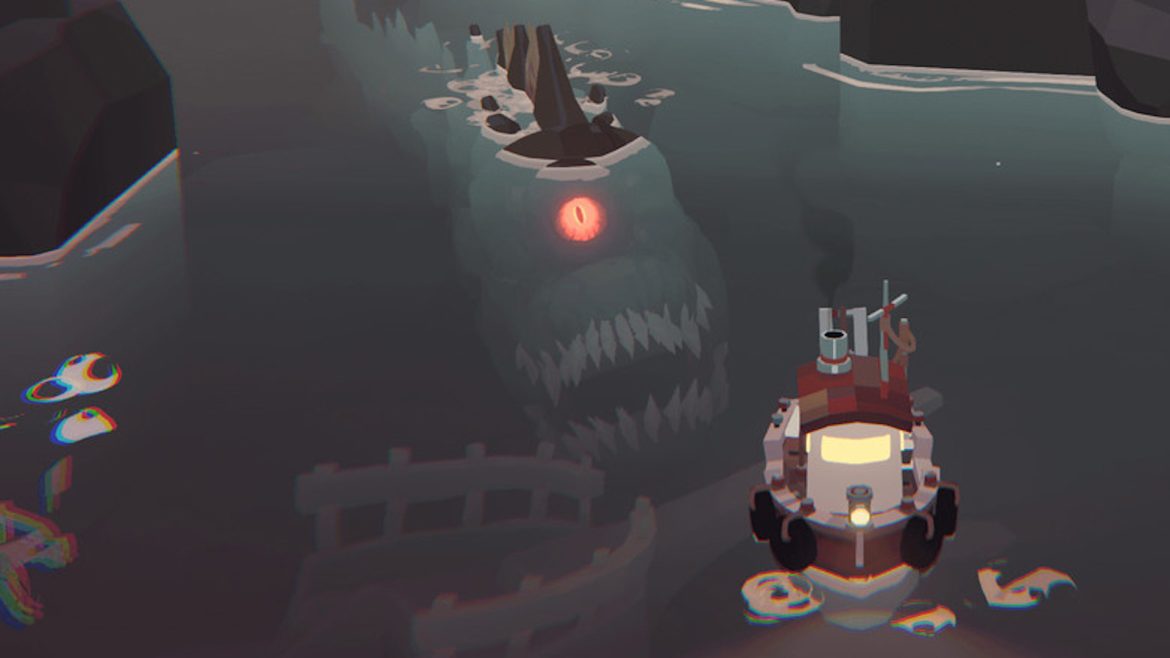Welcome back readers.
Layoffs in tech and culture writing have become so ubiquitous of late as to invite desensitization, but to echo Kaile’s sentiment this week, Vice’s choice to wind down Waypoint hits different, worse, more personal, and I suspect that’s the case for a lot of our readers here. The note of hope I reflect on amidst this news is that the communities such publications foster can, do, and will outlive the span of their official recognition and renumeration by shortsighted c-suites. It resonates with a notion that we’ve been thinking about at Critical Distance recently: that criticism comes from community.
This Week in Videogame Blogging is a roundup highlighting the most important critical writing on games from the past seven days.
Debriefing
Our opening section this week considers different angles of industry, both of them inherently about community.
- 3-24-24-12pm | DEEP HELL
Skeleton chronicles the GDC afterparty circuit. - Beacons in the Dark | No Escape
Kaile Hultner pours one out for one of the most vital pillars of community and criticism in the last decade.
“What does Waypoint mean to games media? I mean, just ask around. Folks all over what’s left of social media have been talking about the often profound effect Waypoint‘s mere existence has had on them, either as freelancers trying to make a name for themselves in a cutthroat industry or simply because of the content the site published. Some of the keywords people have used to describe the criticism and journalism put out by Waypoint: humane. Holistic. Comprehensive. Thoughtful. Life-changing.“
Sources Confirm
Here’s a pair of interview picks about fresh-and-new genres and games.
- Putting the gay in video games: a recipe for Butterfly Soup | Eurogamer.net
Sam Greer chats with developer Brianna Lei about authentic representation, her writing influences, and the gayest sport. - Cozy games are getting darker | Polygon
Nicole Carpenter tracks the emergence of a new subgenre through a blend of interview and analysis.
“Almost in spite of itself, Dredge has a warmth to it that pulls it into the cozy genre. It’s the loop of its simple fishing minigame that leads into a cargo hull-sized game of Tetris. It’s the fishmongers and fellow seafarers who buy your fish and fix your ship. These are the elements of community and consistency that keep Dredge from getting too dark.”
Trend Settings
Next up we’ve got a series of (mostly) longer-form critical meditations on genres, trends, trials, and tropes.
- The Kid in the Fridge: Sacrificial Children and Vengeful Masculinity in Contemporary Videogames | Journal of Games Criticism
Emma Reay investigates a trend in Assassin’s Creed, videogames more broadly, and entertainment media more broadly still away from the fridging of women towards the fridging of children, both in the name of masculine protagonist character development. - Drawing the Line: The Sublime Horror of Getting Stuck in a Puzzle Game | cohost
kasiski presents a longform theory of the pleasures (?) of the puzzle genre. - Square Enix’s AI Tech Demo Is a Staggering Failure | Waypoint
Renata Price, in the wake of Square Enix’s recent Portopia misfire, would also like to remind readers that We Have AI Dungeon at Home.
“If this version of The Portopia Serial Murder Case was intended to demonstrate a newly emerging technology to audiences and developers alike, then it has done so quite elegantly—immediately revealing to anyone who spends more than five minutes with the game how empty the promise of AI in games currently is.”
Critical Chaser
This week we close out with something a little different.
- The Orbital Game Became My Blood | GlitchOut
Oma Keeling glimpses a future history of games and play.
“Inside the ship people made these things called games, they were basically playful entertainment and the easiest was to just imagine something was real and react to it, art where you interact in some way vital to changing its state, it was lots of stuff. Since the people were self-sufficient and didn’t need money they didn’t see the point of selling stuff like art, it was for everyone who wanted it.”
Subscribe
Critical Distance is community-supported. Our readers support us from as little as one dollar a month. Would you consider joining them?
Contribute
Have you read, seen, heard or otherwise experienced something new that made you think about games differently? Send it in!


